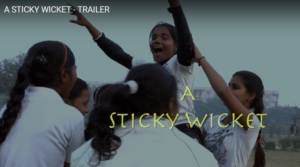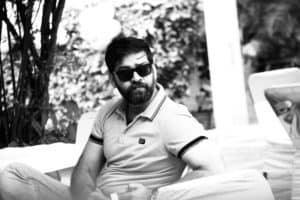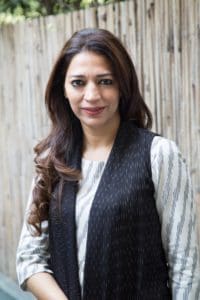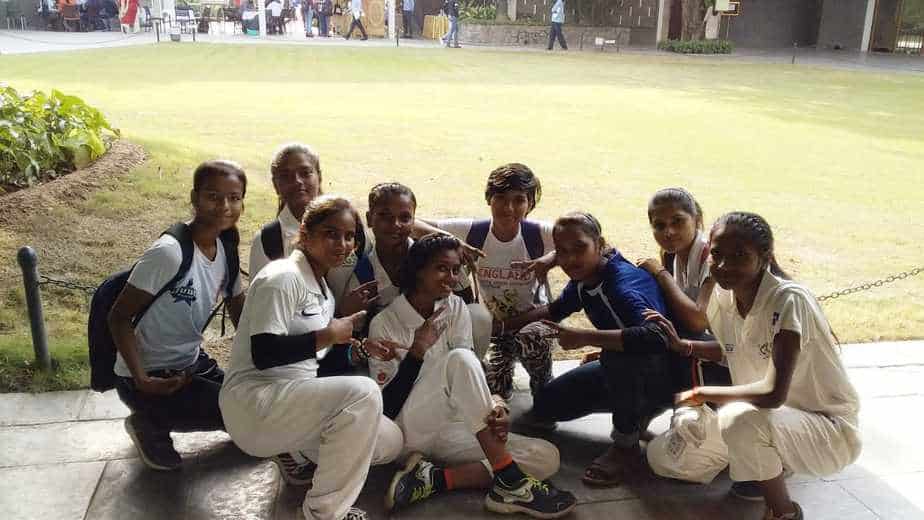Yasmin and Fazal Kidwai’s documentary, A Sticky Wicket is about the girls living in the crime-infested Shahbad Dairy. They have defied societal norms and risen above all challenges to play cricket, which has given them hope
“What do you do if you need to use the washroom after 11 at night?” asks the filmmaker. “I won’t go,” replies 15-year-old Champa. After a brief pause she smiles and says, “Rok ke rakhungi, lekin jaungi nahi” (I will control, but I won’t go to the washroom at night).
This is not a scripted scene from a film, but the harsh reality of Shahbad Dairy in Delhi’s Rohini, which has been documented onscreen in Yasmin and Fazal Kidwai’s A Sticky Wicket. Shahbad Dairy is infamous for its high crime rate. Here, having a washroom inside a home is a luxury. Thus, most of the young girls in the area have to use a common washroom, which is a breeding ground for predators. Unfortunately, many women get molested and raped in these washrooms by the local men.
The only solution the parents of these girls could come up with is not feeding them after evening. Despite their underprivileged background and even under such challenging circumstances, these girls dared to dream. They got the opportunity to play cricket through the efforts of Saksham Sports Club. This changed their lives, giving them the strength they needed to survive and made them believe in themselves.

Capturing the empowering story of these teenage girls onscreen, A Sticky Wicket is a documentary which takes you into their lives. From doing the household chores, attending school and tuition classes to practising cricket and cooking meals for their family –- these girls tirelessly work without complaining. Shantlal founded the Saksham Sports Club in 2016 and came up with the idea of building an all-girls cricket team. He also trained the girls to play cricket. Starting with three girls, he now coaches 75 girls of Shahbad Dairy. It was he who trained the girls to play cricket.
Filmmaker Yasmin Kidwai — who has always been intrigued by unknown genres and has explored them through her documentaries — has been in this profession for about 15 years. She, along with her brother Fazal Kidwai, has ventured into various unexplored territories of India to document unique stories. They have received international acclaim for their works as well.
Yasmin believes in documenting positive stories. “We talk enough about people’s problems, so if we depict stories that also showcase the positive side – like how these problems are solved – then that is what makes it more interesting,” says Yasmin. When asked whether she’s purposefully on a look out for such stories which deal with social issues and women empowerment, she says “No, it is not on purpose. I think you just come across things in life towards which you are drawn.”

Yasmin says that this documentary may be of a short duration, but it took them more than a year to shoot. She believes that non-fiction is much more challenging than a — fictional story. “These girls were never exposed to a camera. So, to get them to open up was a task. It is an intimate film. So, to get into their lives was a process that took time,” she says.
“Initially, we just observed them with a camera, without being intrusive in their space. When they started getting familiar with us, they became less conscious of the camera,” says Fazal. He describes this documentary as ‘a small film with a very large heart’. “It is a simple film. It narrates the story of these girls the way it is, without adding any drama to it,” he adds.
Yasmin shares that the parents of these girls poured their heart out. “They shared their emotions with us – their own issues, childhood memories and unfulfilled dreams during the filming process. This is probably because they got a stage to share their feelings for the first time.”
So did their parents. “I am a single mother. I work during the day. So, I cannot look after my daughter all the time. When she goes for practice, I feel she is safe there and is getting to learn something good out of it,” says Champa’s mother, who has supported her daughter to take part in sports. “They have learnt a lot of things from there. I do not have a problem at all. I know what she is doing is for her betterment only,” she further adds. Champa used to play football in the lanes of her colony. “It was through Shantlal Sir that I was introduced to cricket. Since then I have been playing cricket and I now I am totally into it. I would like to continue playing,” she says.

17-year-old Kavita recently got selected to play cricket for the Under-19 national team. She was also introduced to cricket through Shantlal. “I went for jogging in the fields, that is when I came across Shantlal Sir. I came to know that he trains 2-3 girls, but I thought it must be more of a recreational activity, nothing serious,” she says, adding that she had to gather courage to ask him about it. After she came to know that he is planning to make an all-girls cricket team, she showed interest and joined in. “I am so happy! I cannot explain it in words. This was my dream,” she says, while talking about her selection in the national team. She also said that she wants to help the other girls in her team.
She shared her experience of the documentary shoot. “I was nervous during the shoot initially. But we started enjoying it once we became familiar with it.” She believes that this documentary will let people know about Shahbad and their lives, which would have otherwise remained in the dark.
Yasmin seconds this view and adds that this film will give exposure to these girls which is why she wants it to reach out to a wider audience. Swati, 16, feels elated after watching herself on the big screen. “Yeh film dekh ke lag raha hai ab toh hum aage ja sakte hai, humare andaar aur zyada hosla aa gya hain. Aur main aage ja ke bhi cricket khelna chahti hu.” (After watching this film, I feel we can succeed in life and this has infused much more power and courage in us. And I want to continue playing cricket).




